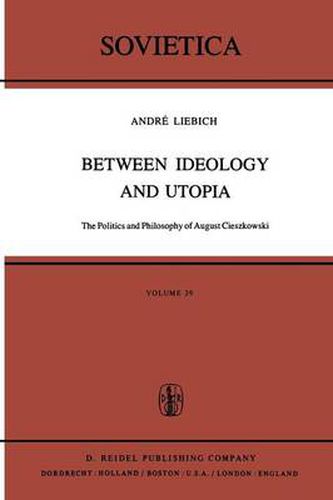Readings Newsletter
Become a Readings Member to make your shopping experience even easier.
Sign in or sign up for free!
You’re not far away from qualifying for FREE standard shipping within Australia
You’ve qualified for FREE standard shipping within Australia
The cart is loading…






This title is printed to order. This book may have been self-published. If so, we cannot guarantee the quality of the content. In the main most books will have gone through the editing process however some may not. We therefore suggest that you be aware of this before ordering this book. If in doubt check either the author or publisher’s details as we are unable to accept any returns unless they are faulty. Please contact us if you have any questions.
Nineteenth-century European intellectual history has given rise to such varied and abundant research that one is surprised to find certain important problems long identified and yet still relatively unexplored. Such is the case for certain aspects of the crucial transition from Hegel to Marx, for minority tendencies among French socialists and for the Messianic phenomenon, national and religious, so central to the period, particularly in Eastern Europe, and so rarely studied in detail. Certainly, these lacunae are exemplified by the absence of any com prehensive work on August Cieszkowski whose overall contribution to the history of the period may be marginal but whose specific role in each of the areas mentioned is both significant in itself and illustrative of certain wider problems. Cieszkowski first achieved recognition as the author of the Pro legomena zur Historiosophie in 1838. This short tract never became popular among the Berlin Hegelians for whom it was intended but it affected a number of radical intellectuals outside their circle. His next work, Gott und Palingenesie, was a defense of personal immortality against Hegelian revisionism. The following year, however, he founded as a bulwark of the Hegelian school the Philosophische Gesellschaft against external critics and internal dissolution.
$9.00 standard shipping within Australia
FREE standard shipping within Australia for orders over $100.00
Express & International shipping calculated at checkout
This title is printed to order. This book may have been self-published. If so, we cannot guarantee the quality of the content. In the main most books will have gone through the editing process however some may not. We therefore suggest that you be aware of this before ordering this book. If in doubt check either the author or publisher’s details as we are unable to accept any returns unless they are faulty. Please contact us if you have any questions.
Nineteenth-century European intellectual history has given rise to such varied and abundant research that one is surprised to find certain important problems long identified and yet still relatively unexplored. Such is the case for certain aspects of the crucial transition from Hegel to Marx, for minority tendencies among French socialists and for the Messianic phenomenon, national and religious, so central to the period, particularly in Eastern Europe, and so rarely studied in detail. Certainly, these lacunae are exemplified by the absence of any com prehensive work on August Cieszkowski whose overall contribution to the history of the period may be marginal but whose specific role in each of the areas mentioned is both significant in itself and illustrative of certain wider problems. Cieszkowski first achieved recognition as the author of the Pro legomena zur Historiosophie in 1838. This short tract never became popular among the Berlin Hegelians for whom it was intended but it affected a number of radical intellectuals outside their circle. His next work, Gott und Palingenesie, was a defense of personal immortality against Hegelian revisionism. The following year, however, he founded as a bulwark of the Hegelian school the Philosophische Gesellschaft against external critics and internal dissolution.